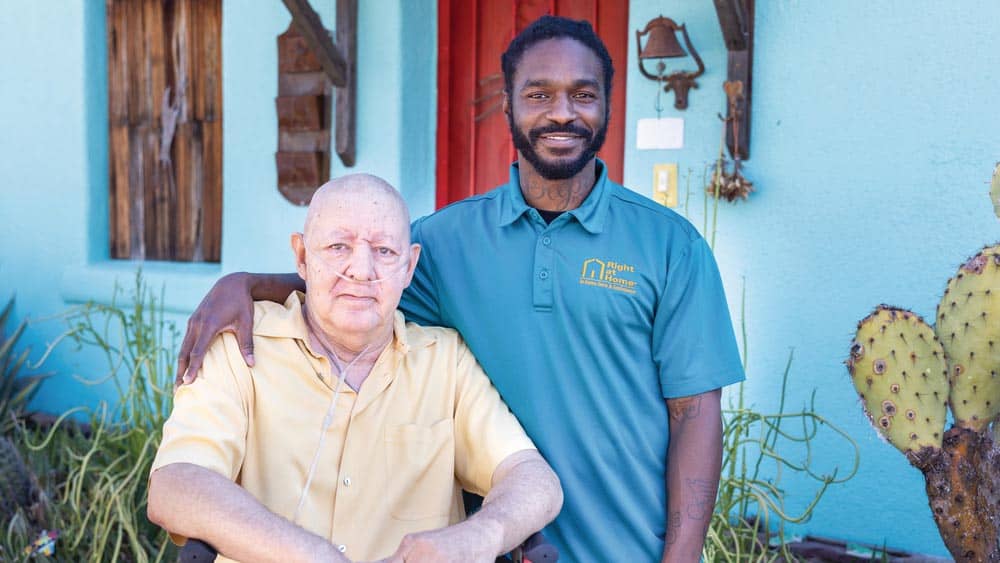

Dementia Support: 6 Must-Read Books for Family Caregivers
Caring for someone with dementia poses a complex, ever-evolving challenge that few are equipped to handle alone. Experts say that for the well-being of both the person with dementia and the person caring for them, caregivers should have a support system in place and take advantage of any resources available to help. Support systems help caregivers avoid burnout and can include caregiver support groups. Other resources can consist of podcasts, videos, and various books. Here are some of the best-selling published works designed to help caregivers navigate the maze of dementia care while maintaining their own self-autonomy.
- The 36-Hour Day: A Family Guide to Caring for People Who Have Alzheimer Disease and Other Dementias (A Johns Hopkins Press Health Book) by Nancy L. Mace and Peter V. Rabins
Long considered a standard how-to book in the field, “The 36-Hour Day” covers what family caregivers can do to optimize the lives of the people they care for as well as their own lives. One cannot thrive without the other being right. It addresses resources such as home care aides, smart apps, and preventive techniques and therapies. - The Empowered Caregiver’s Guide to Dementia: Understand and Manage the Disease, Plan for Caring and Financial Challenges, and Balance Your Personal Needs to Thrive (Not Just Survive) by Sheila Keene-Lund
Mindfulness is at the heart of this book. It offers strategies and insights for managing the multidimensional pulls of caregiving while maintaining personal and spiritual well-being. The book identifies the emotional calculus of guilt, denial, anger, forgiveness, gratitude, self-awareness, resiliency, and intimacy that caregivers need to acknowledge and understand. The book points out that making time for self-care and giving grace is essential for maintaining good mental health and a joyful spirit. - Dementia Caregiver’s Respite 2-In-1 Value: The Dementia Caregiver’s Survival Guide + Dementia Caregiving – Effective Strategies for Dementia Care and Self-Care by Janet G. Cruz
This two-in-one set of guides for caregivers provides practical how-tos for managing increasingly challenging behaviors presented by the patient, communicating effectively without diminishing their dignity, and creating a safe and comfortable environment that empowers both parties. The book provides tips for the caregiver to balance their own needs with those of the patient. - Did I Remember to Tell You? A Real-Life Guidebook for Dementia Family Caregivers by Pam Kovacs Johnson
The author uses her own experience caring for her father to give readers the perspective and language they need to speak compassionately, cope more effectively, and expect the unexpected in successfully making it from one day to the next. Real-life stories illustrate that dementia and caring for people with it is a journey that must be experienced with an open mind and heart, one day at a time. - The Dementia Caregiver’s Survival Guide: An 11-Step Plan to Understand The Disease and How To Cope with Financial Challenges, Patient Aggression, and Depression Without Guilt, Overwhelm, or Burnout by Janet G. Cruz
The book informs caregivers that dementia affects more than just memories; it affects behaviors and emotions as well. Knowing what the disease is and how it presents can help caregivers understand what’s happening and game-plan for what’s to come while acknowledging that it will always be challenging. Readers are taken step by step on choosing positive rather than negative ways to respond to whatever challenges arise. The book shares insights into what both the patient is experiencing and what caregivers are feeling, bridging the two to offer ideas around opportunities for meaningful human connection and fulfillment in serving someone in need. - The Caregiver’s Guide to Dementia: Practical Advice for Caring for Yourself and Your Loved One by Gail Weatherill
This book and the others listed here advocate some of the key features central to Right at Home’s approach to dementia. By consensus, experts and authors advise caregivers to focus on empowering and celebrating a patient’s ability rather than disability, as well as their personhood and lifestyle. Personhood means incorporating a person’s life history, routines, and preferences into any personal care plan. Lifestyle refers to setting goals and creating support activities in nutrition, socialization, wellness, and awareness. Weatherill has her own ideas for maximizing cognitive retention and minimizing cognitive loss. She also shares caregiver wellness practices and where to find resources, and she suggests questions to ask health care and other professionals to get the most helpful information.
Helpful General Advice for the Family Caregiver
The books listed above all address caring for someone with dementia but come at the subject from different vantage points. They all share some basic tenets caregivers should heed:
- Planning for the disease’s inevitable progression can help smooth the path for both caregiver and patient, thereby opening space to affirm each other.
- As dementia advances, caregivers must contend with financial, medical, hygiene, dietary, safety, and legal issues that crop up as the affected senior loses more physical and cognitive function.
- For a family caregiver, the stark reality of caring for a loved one who is increasingly dependent upon them and may even lose the ability to recognize them can be a tough adjustment to make.
- Whether the caregiver is a family member or a professional, leading with compassion and patience will yield the best results.
- Dementia care is hard work that tasks a caregiver physically, psychologically, emotionally, and financially; a caregiver doesn’t have to, nor should they, go through the experience alone, as there are resources to lean into.
- Caregivers need to make the well-being of the dementia patient their first priority but not at the expense of their own health; the quality of care that someone with dementia receives will suffer if their caregiver is not taking care of themselves, too.
How Right at Home Can Help
Right at Home has provided in-home companionship, personal care, and nursing services for aging adults for over 29 years. If you are a family caregiver, Right at Home’s trained and insured/bonded caregivers can provide respite care occasionally when you need a break or regularly to ensure the safety and well-being of your older loved one. Getting respite and time to recharge your batteries may be just what you need. To find out how Right at Home helps families caring for a loved one with dementia, download our FREE Dementia and Cognitive Support Guide or use our office locator to speak with the location closest to you.
Interested in receiving information, advice, and content about the aging journey delivered to your email inbox? Subscribe to our Caring Right at Home e-newsletter today. Or, share it with a friend who could use the support as they care for their loved one.







